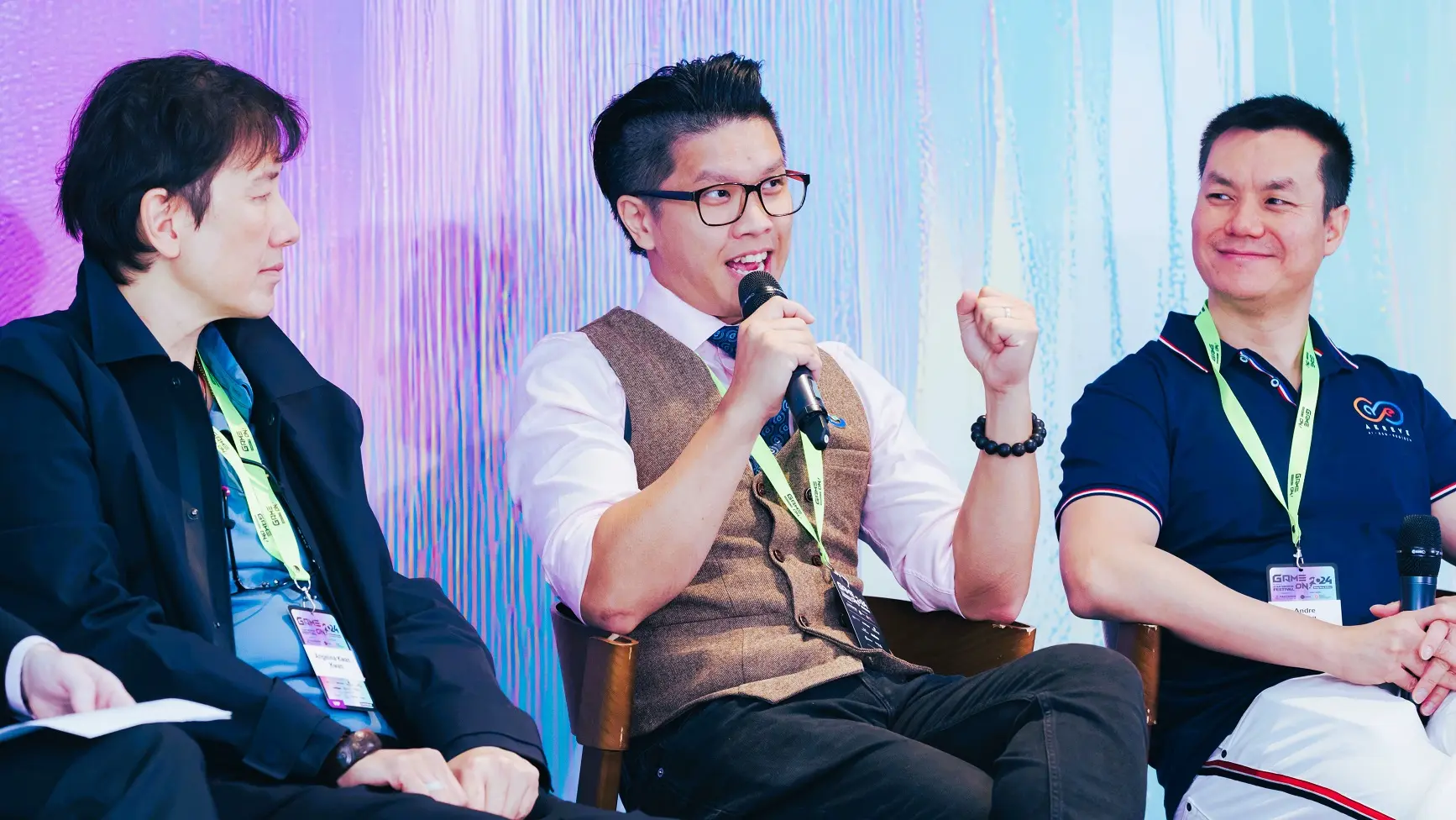- 話題
41k 熱度
20k 熱度
48k 熱度
17k 熱度
44k 熱度
20k 熱度
7k 熱度
4k 熱度
97k 熱度
- 10我的Gate時刻
29k 熱度
- 置頂
- 📢 ETH衝擊4800?我有話說!快來“Gate廣場”秀操作,0.1 ETH大獎等你拿!
牛市預言家,可能下一個就是你!想讓你的觀點成爲廣場熱搜、贏下ETH大獎?現在就是機會!
💰️ 廣場5位優質發帖用戶+X瀏覽量前5發帖用戶,瓜分0.1 ETH!
🎮 活動怎麼玩,0門檻瓜分ETH!
1.話題不服來辯!
帶 #ETH冲击4800# 和 #ETH# 在 廣場 或 K線ETH下 圍繞一下主題展開討論:
-ETH是否有望突破4800?
-你看好ETH的原因是什麼?
-你的ETH持倉策略是?
-ETH能否引領下一輪牛市?
2. X平台同步嗨
在X平台發帖討論,記得帶 #GateSquare# 和 #ETH冲击4800# 標籤!
把你X返連結提交以下表單以瓜分大獎:https://www.gate.com/questionnaire/6896
✨發帖要求:
-內容須原創,字數不少於100字,且帶活動指定標籤
-配圖、行情截圖、分析看法加分,圖文並茂更易精選
-禁止AI寫手和灌水刷屏,一旦發現取消獎勵資格
-觀點鮮明、邏輯清晰,越有料越好!
關注ETH風向,創造觀點價值,從廣場發帖開始!下一個牛市“預言家”,可能就是你!🦾🏆
⏰ 活動時間:2025年7月18日 16:00 - 2025年7月28日 23:59(UTC+8)
【立即發帖】 展現你的真知灼見,贏取屬於你的ETH大獎!
- 🎉 #Gate Alpha 第三届积分狂欢节 & ES Launchpool# 聯合推廣任務上線!
本次活動總獎池:1,250 枚 ES
任務目標:推廣 Eclipse($ES)Launchpool 和 Alpha 第11期 $ES 專場
📄 詳情參考:
Launchpool 公告:https://www.gate.com/zh/announcements/article/46134
Alpha 第11期公告:https://www.gate.com/zh/announcements/article/46137
🧩【任務內容】
請圍繞 Launchpool 和 Alpha 第11期 活動進行內容創作,並曬出參與截圖。
📸【參與方式】
1️⃣ 帶上Tag #Gate Alpha 第三届积分狂欢节 & ES Launchpool# 發帖
2️⃣ 曬出以下任一截圖:
Launchpool 質押截圖(BTC / ETH / ES)
Alpha 交易頁面截圖(交易 ES)
3️⃣ 發布圖文內容,可參考以下方向(≥60字):
簡介 ES/Eclipse 項目亮點、代幣機制等基本信息
分享你對 ES 項目的觀點、前景判斷、挖礦體驗等
分析 Launchpool 挖礦 或 Alpha 積分玩法的策略和收益對比
🎁【獎勵說明】
評選內容質量最優的 10 位 Launchpool/Gate - 和其他領域不一樣的是:你想支持一個 Web3 遊戲項目,你必須要「雙投」——既要投時間,也要投錢。

- 🎉【Gate 3000萬紀念】曬出我的Gate時刻,解鎖限量好禮!
Gate用戶突破3000萬!這不僅是數字,更是我們共同的故事。
還記得第一次開通帳號的激動,搶購成功的喜悅,或陪伴你的Gate週邊嗎?
📸 參與 #我的Gate时刻# ,在Gate廣場曬出你的故事,一起見證下一個3000萬!
✅ 參與方式:
1️⃣ 帶話題 #我的Gate时刻# ,發布包含Gate元素的照片或視頻
2️⃣ 搭配你的Gate故事、祝福或感言更佳
3️⃣ 分享至Twitter(X)可參與瀏覽量前10額外獎勵
推特回鏈請填表單:https://www.gate.com/questionnaire/6872
🎁 獨家獎勵:
🏆 創意大獎(3名):Gate × F1紅牛聯名賽車模型一輛
👕 共創紀念獎(10名): 國際米蘭同款球員衛衣
🥇 參與獎(50名):Gate 品牌抱枕
📣 分享獎(10名):Twitter前10瀏覽量,送Gate × 國米小夜燈!
*海外用戶紅牛聯名賽車折合爲 $200 合約體驗券,國米同款球衣折合爲 $50 合約體驗券,國米小夜燈折合爲 $30 合約體驗券,品牌抱枕折合爲 $20 合約體驗券發放
🧠 創意提示:不限元素內容風格,曬圖帶有如Gate logo、Gate色彩、週邊產品、GT圖案、活動紀念品、活動現場圖等均可參與!
活動截止於7月25日 24:00 UTC+8
3
- 🔥 Gate廣場 #GateAlpha积分节# 曬單狂歡開啓!
帶 #Gate Alpha交易分享# ,曬出你的Alpha第三屆積分節高光交易,瓜分 $100 幸運獎池!
🎁 10名幸運曬圖用戶 * 10 USDT
📅 7月4日 12:00 -7月20日 24:00 UTC+8
別忘了,Alpha積分節主獎池高達百萬美元,快來交易 + 曬圖雙重贏獎!
活動詳情:https://www.gate.com/announcements/article/45908
比爾·蓋茨最新預言:AI 時代人類每週僅工作 2 天,這三大職業將成為「鐵飯碗」
編譯:元宇宙之心
自 2022 年 OpenAI 推出 ChatGPT 以來,AI 產業正以日新月異的速度發展。此前 Chat Studio 生成的吉卜力風格圖像引發全網熱議,就連好萊塢也擔憂創意產業將被 AI 顛覆。
在這股職業焦慮浪潮中,這位億萬富翁在 Jimmy Fallon 採訪中給出了讓人安心的回答。
蓋茨談 AI 職業替代
訪談中蓋茨坦言:「未來數年內,AI 必將接管大部分工作。」
但他同時強調,當前專業人才仍然稀缺,人類仍需依賴各領域專家,比如「頂尖醫生」或「優秀教師」。不過他也預言:隨著 AI 發展,十年後優質醫療諮詢和教學輔導將變得觸手可及。
這位億萬富翁特別指出:「有些職業永遠無法被取代——比如沒人會想看機器打棒球比賽。人類總會保留專屬領域,但在製造、物流和農業生產方面,這些都將成為被 AI 攻克的基本問題。」
三大「AI 免疫」職業
蓋茨還列舉了三個專業:編碼人員,生物學家和能源專業人士,目前很難被取代。
程序員:蓋茨指出,開發 AI 系統和編寫代碼的工作將會是穩定安全的。儘管 AI 已能自動生成代碼,但軟件開發的核心競爭力,包括適應力、問題解決能力和精準度,仍掌握在人類手中。特別是在調試代碼、優化系統及推動 AI 技術迭代方面,人類開發者將繼續扮演不可替代的角色。
生物學家:雖然 AI 在數據處理和輔助診斷方面表現出色,但形成研究假設、設計實驗路徑等需要突破性思維的科研工作,仍是生物學家獨佔的領域。蓋茨指出,人工智能無法提出假設,在基因編輯、新藥研發等前沿領域,人類科學家仍將是推動醫學進步的核心引擎。
能源專家:談到能源行業時,蓋茨指出,儘管 AI 可以提高效率,但在碳中和轉型的複雜棋局中,涉及技術路線選擇、地緣政治平衡等戰略性決策,依然需要人類專家運籌帷幄。特別是在危機管理與長期戰略規劃方面,人類的系統思維具有決定性優勢。
人類未來幾乎不用工作?
此外,比爾·蓋茨還表示,我們的工作方式可能在未來十年發生鉅變。隨著人工智能的飛速發展,人類未來或許每週只需工作兩到三天。
「未來的工作會是什麼樣?我們可能只需要每週工作兩三天?」蓋茨在訪談中發問。他指出:「按照當前 AI 的創新速度,人類將不再需要參與大多數工作。」
這並非蓋茨首次提出該觀點。早在 2023 年 OpenAI 的 ChatGPT 剛剛興起時,他就預言「最終」會形成每週工作三天的新常態。
後來在 Trevor Noah 的 What Now 播客中,蓋茨強調:「從宏觀角度看,人生的意義不僅在於工作」,並呼籲人們從全職工作中解放後,應重新思考如何利用時間。
縮短工時的爭議觀點
儘管蓋茨描繪了減少工時的未來圖景,部分印度商界領袖卻持截然相反立場。Infosys 聯合創始人 Narayana Murthy 曾建議,印度人每週應工作 70 小時以保持國際競爭力,不過他補充稱這更多是個人選擇而非強制要求。
Larsen&Toubro 公司董事長 SN Subrahmanyan 想得更遠,他在一段舊視頻中甚至表示後悔沒讓員工週日加班,此前他主張每週工作 90 小時——然而這些言論引發了強烈反對。
與蓋茨共鳴的聲音
持相似觀點的商界領袖不止蓋茨一人。
摩根大通 CEO Jamie Dimon 近期表示,AI 可能讓人類實現每週工作三天半。日本也在進行相關嘗試,東京都政府近期推出四天工作制試點,不過其主要目的是應對少子化問題。
隨著職業倦怠席捲全球職場,蓋茨對 AI 驅動的工作周的願景可能會比預期的時間要更快。
原文來源於: